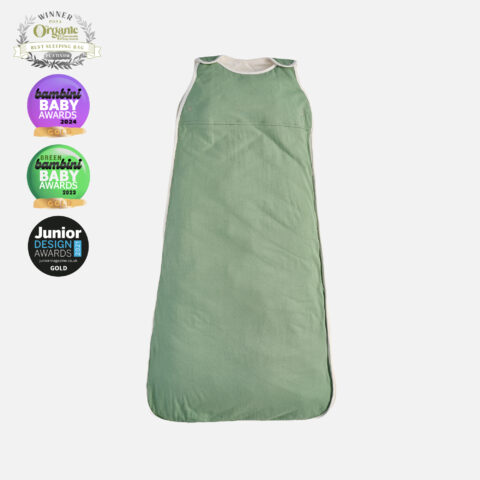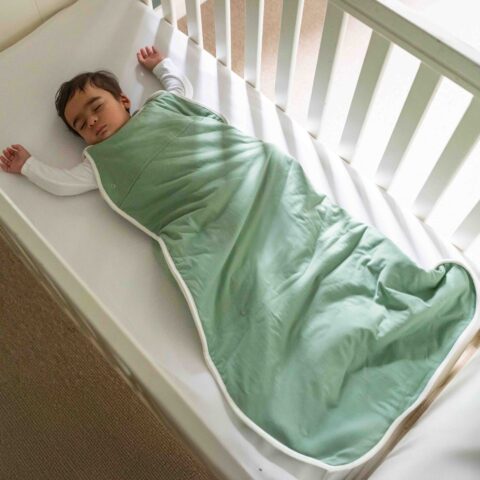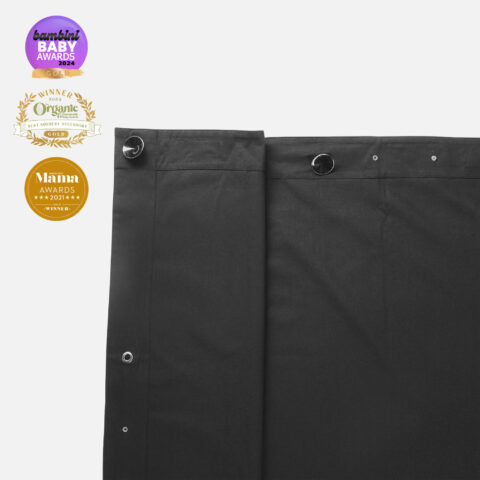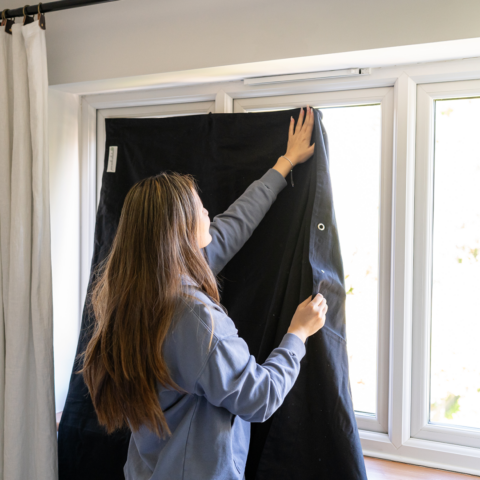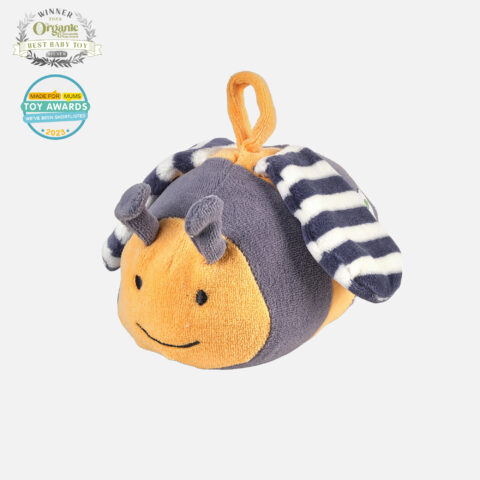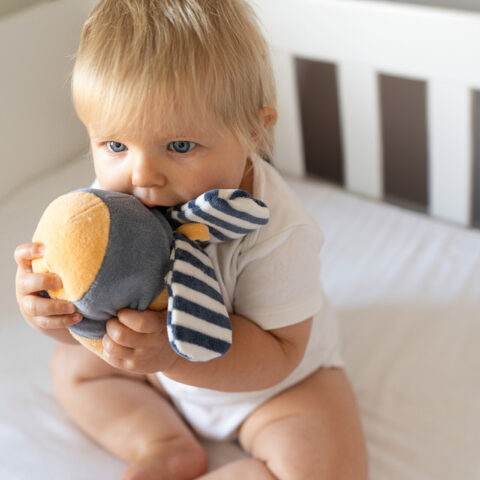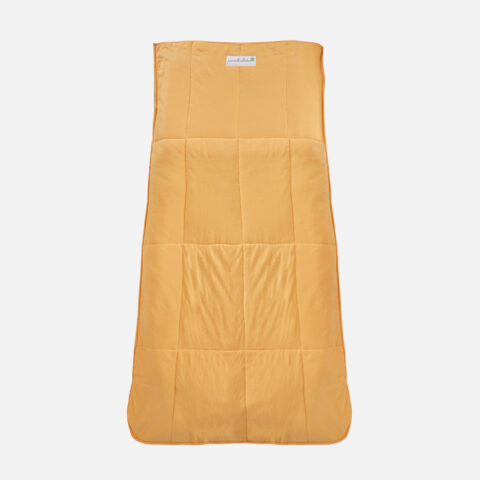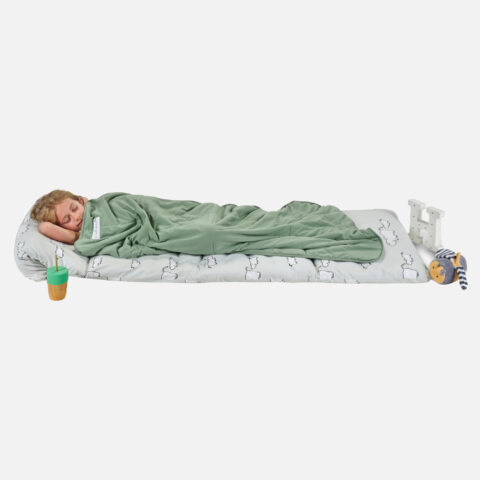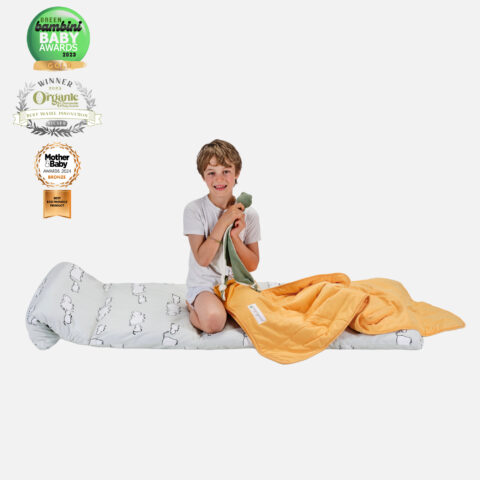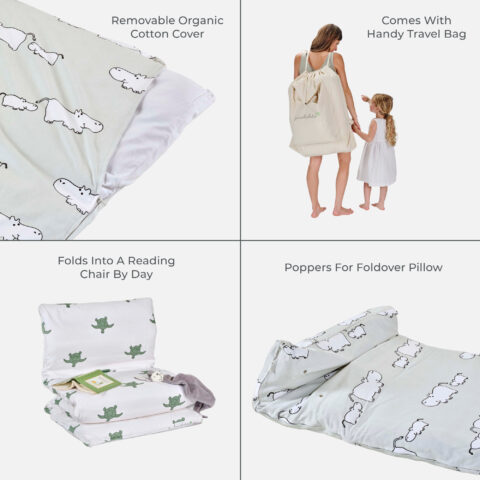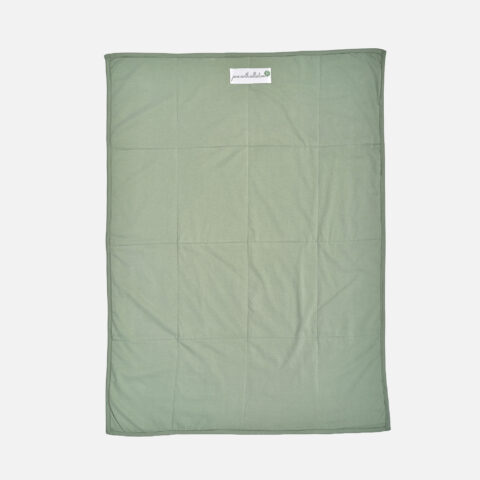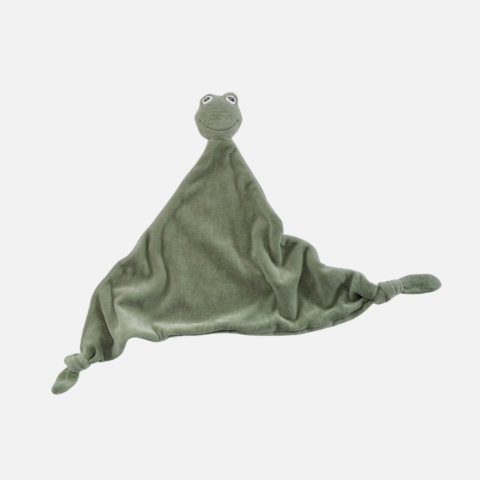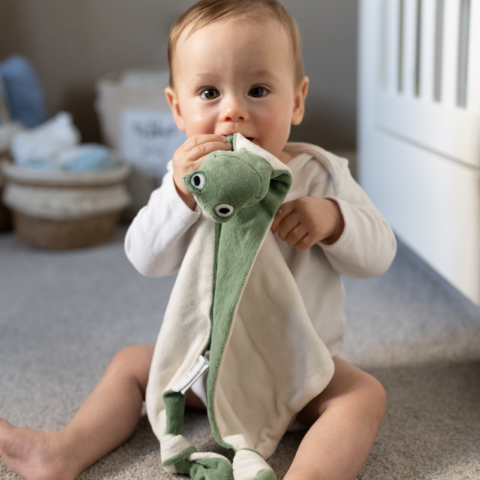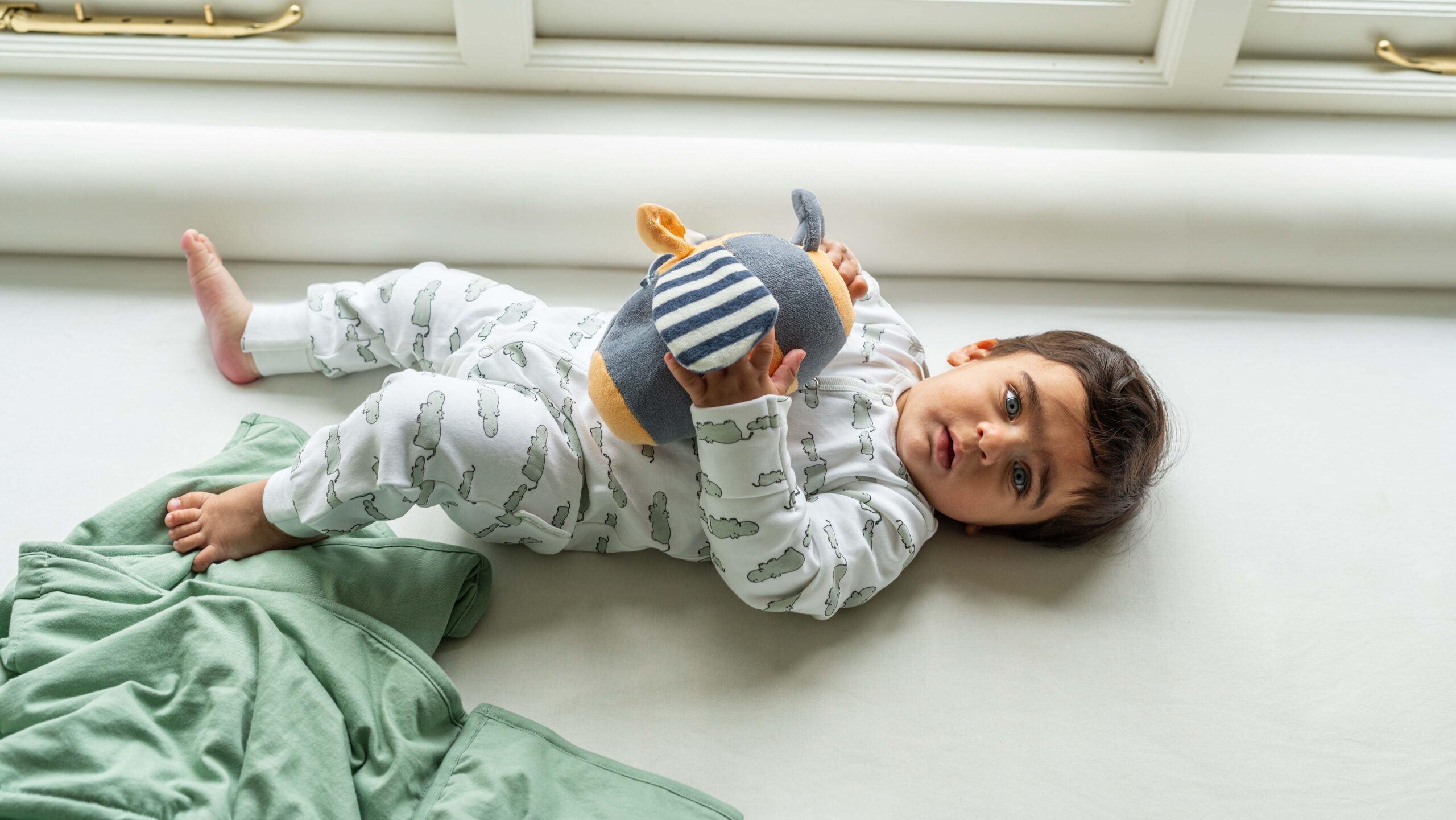
Organic materials are not just a trend; they are a cornerstone of a healthier and more sustainable future, especially when it comes to products we trust for our children. From the clothes they wear to the blankets they snuggle into at night, the choice of fabric plays a pivotal role in both their wellbeing and the health of our planet. This Organic September, we’re taking a closer look at why materials like organic cotton, bamboo, modal, and kapok are a better choice for children’s products, and how they help us tread more lightly on the Earth.
Why Choose Organic Fabrics?
1. Organic Cotton: Renowned for its softness and breathability, organic cotton is a staple in our children’s clothing and bedding. Unlike conventional cotton, which is grown using pesticides and synthetic fertilisers, with multiple chemicals added to the finished fabrics, organic cotton is cultivated in a way that aims to replenish and maintain soil fertility and build biologically diverse agriculture and has strict restrictions about what can be added to the end materials. Products like our organic sleeping bags are not only gentler on your child’s skin but also promote better sleep due to the fabric’s natural breathability and comfort. Organic cotton tends to be softer and last for longer as the structure of the fibres is maintained.
2. Bamboo: Bamboo fabric is celebrated for its temperature-regulating properties and natural antibacterial nature, making it perfect for everything from sleeping bag wadding to toy filling. This fast-growing plant is easy to grow organically as it requires no fertiliser, and very little water and regenerates from its roots, so it doesn’t need to be replanted—making it an incredibly sustainable option. Our bamboo sleeping bags and blankets utilise the natural softness and thermoregulating magic of bamboo, ensuring children stay comfortable no matter the season.
4. Kapok: A lesser-known but equally impressive organic material, kapok is harvested from the seed pods of the kapok tree and used for its fluffy, lightweight, and hypoallergenic properties. It’s perfect for children who are sensitive to other fill materials and shines in our eco-friendly kid’s travel beds, providing comfort without compromise.
The Environmental Impact
Choosing organic and natural materials isn’t just about comfort; it’s also about protection. The production of synthetic fabrics like polyester and nylon not only consumes extensive, non-renewable resources but is also the single biggest contributor to the microplastic pollution plaguing our bodies, bloodstreams and oceans. Every wear, wash and tumble dry of synthetic garments releases thousands of microplastic fibres into the air that we breathe and our waterways, which further pollute our marine food chain, the water we drink and the food we eat.
There’s currently a lot of greenwashing out there about ‘eco’ fabrics. Let’s clear up some myths about ‘recycled’ fabrics in particular. While recycling natural and organic fabrics can be beneficial, the story is different from synthetic ones. Many products labelled as ‘recycled’ are made from synthetic materials like polyester, which is 100% plastic. When these plastics are recycled into fabrics, they degrade into microplastics—tiny, toxic particles that escape into our environment and bodies. Moreover, recycled plastics have been shown to have a much higher toxic chemical load. The recycling process itself often involves high heat, breaking down these plastics and releasing even more harmful chemicals compared to new fabrics. This not only poses a health risk but also amplifies environmental damage.
In contrast, organic fabrics offer a solution that supports not only the health of the environment but also our wellbeing. By adhering to stringent organic standards, farmers keep harmful chemicals out of our ecosystems, benefiting not only the soil and water but also the workers and wildlife in their vicinity.
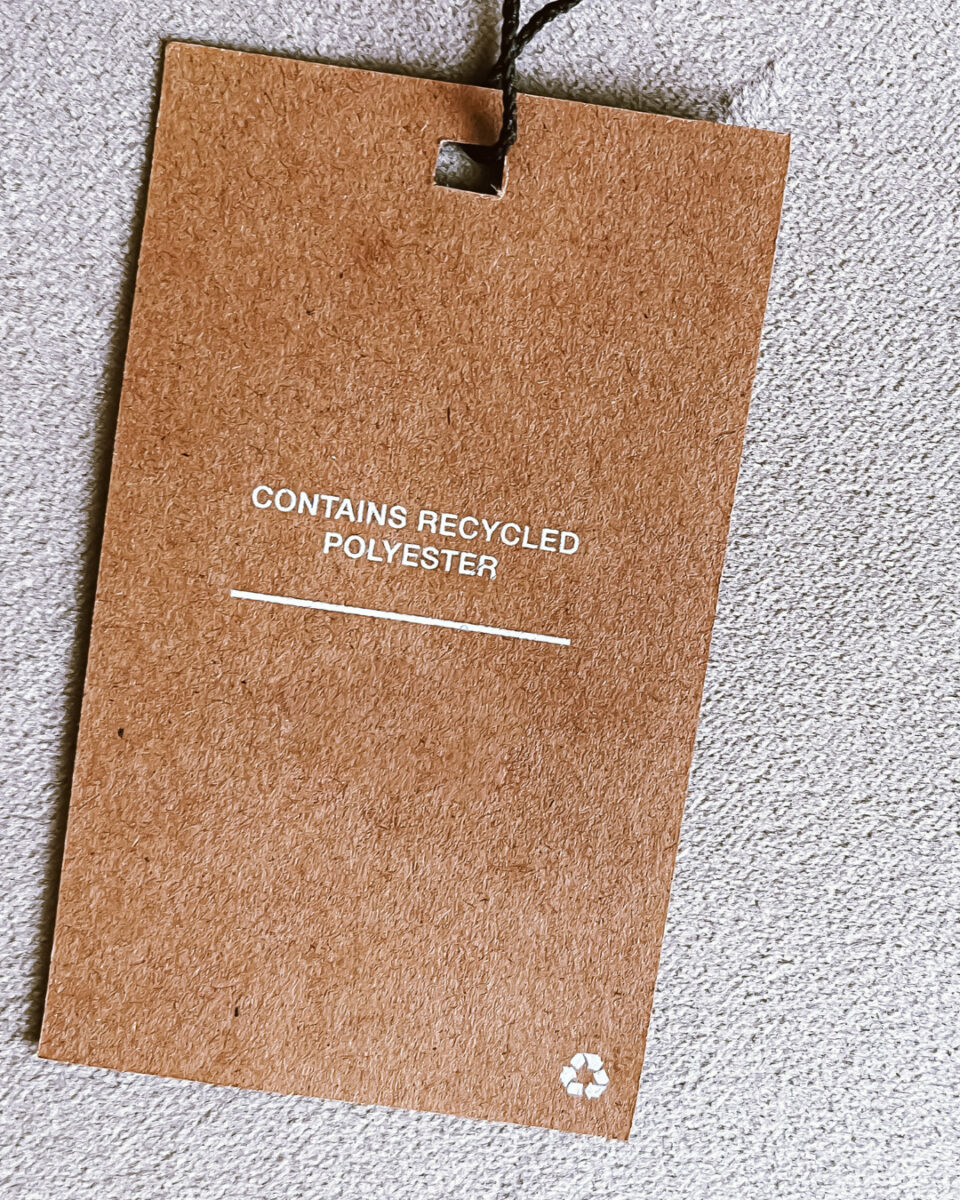
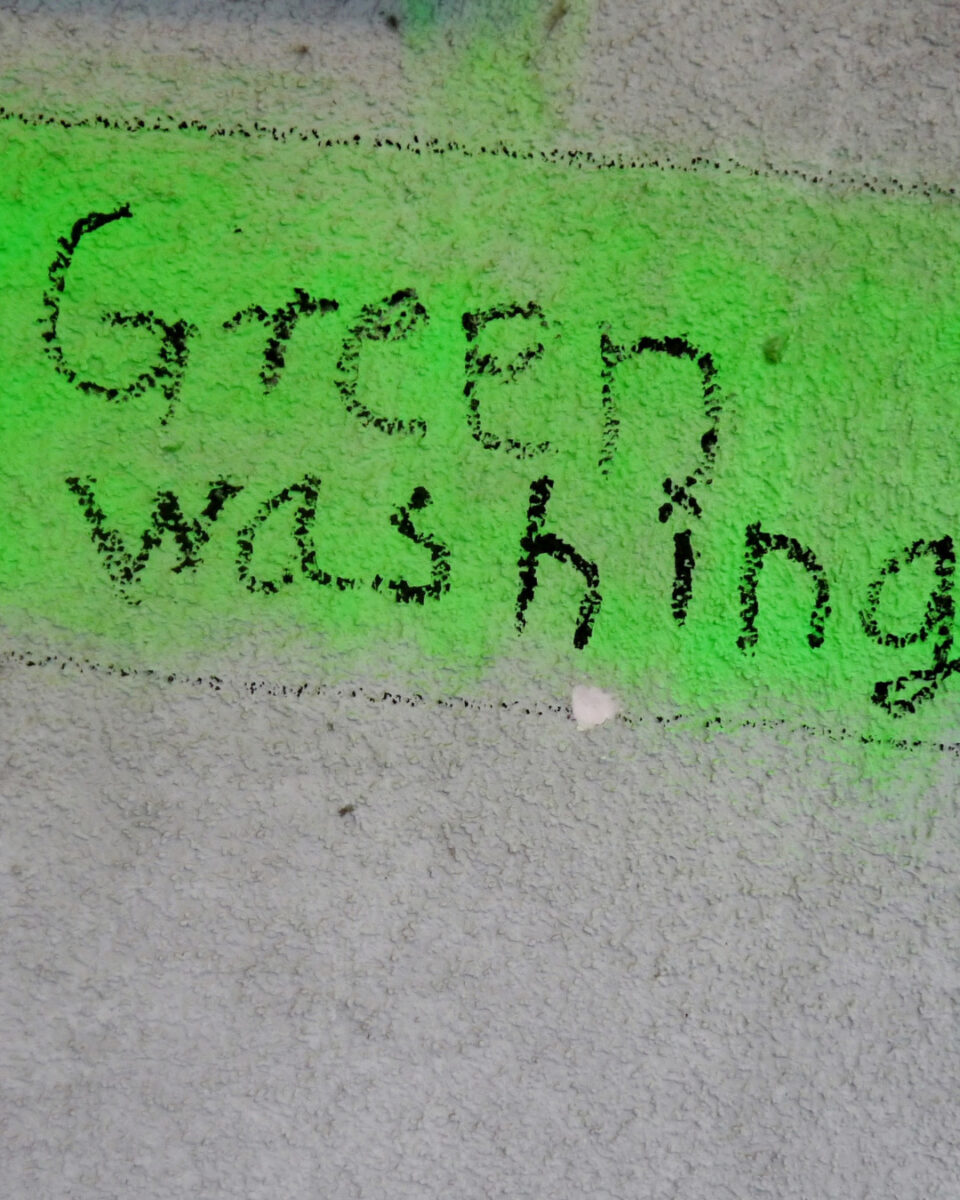
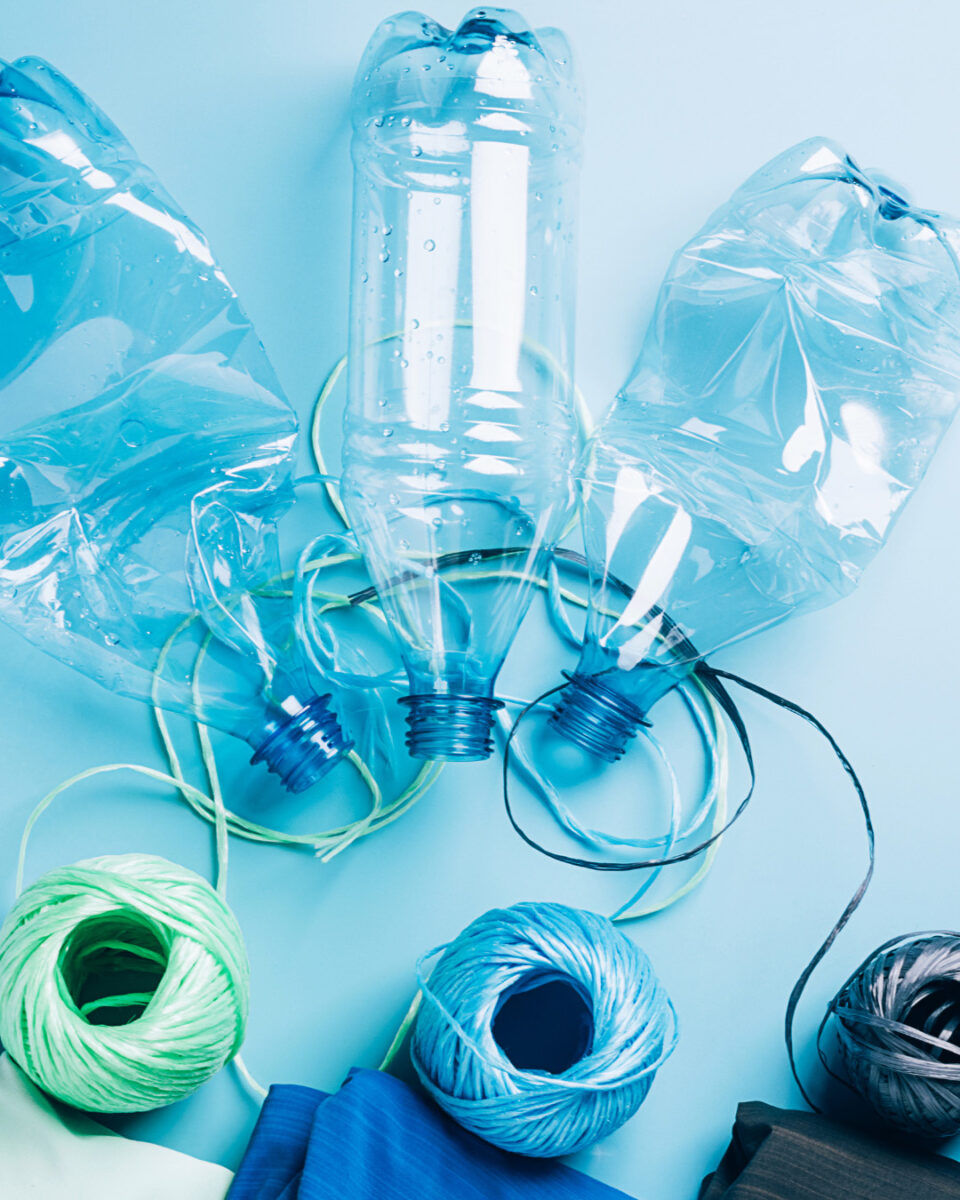
Aligning With Organic September
Organic September traditionally focuses on organic food products, but it’s also a perfect time to spotlight the importance of organic non-food products. Just as choosing organic foods can reduce our exposure to pesticides and genetically modified ingredients, opting for organic textiles helps minimise our exposure to harmful chemicals and synthetic materials.
By embracing organic children’s products, we not only safeguard their health and ensure they sleep and play in safety and comfort but also contribute to a sustainable world. This Organic September, let’s celebrate and choose organic — for our children’s future, and for the planet they will inherit.
Pure Earth Collection is on a mission to create a safer world for the next generation. Join us as we explore more about how you can make a difference through informed choices. Check out our range of non-toxic children’s products and learn how each item goes beyond just being eco-friendly to being a part of a larger movement towards sustainability, health and a future less reliant on plastics.
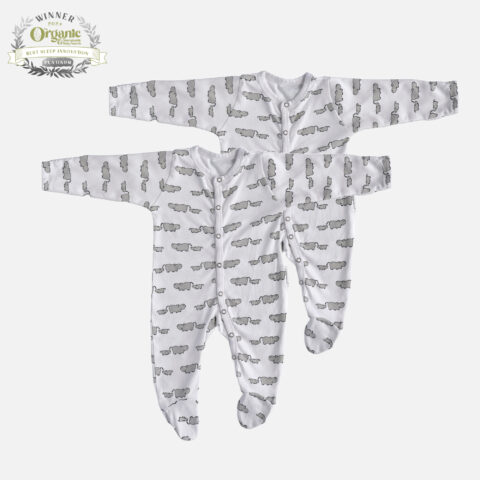
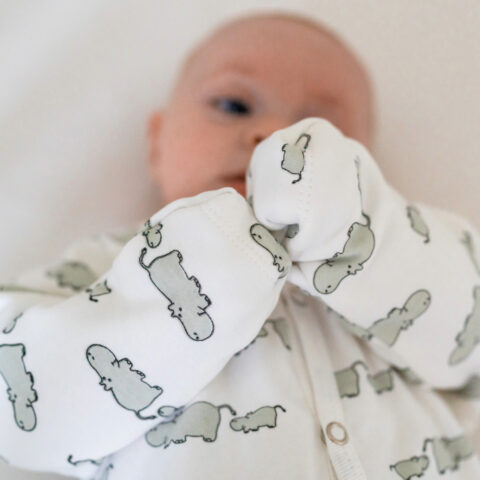
Winter Sleepsuit With Padded Sleeves (2pk) – Hippo
Original price was: £62.00.£31.00Current price is: £31.00. Shop Now
